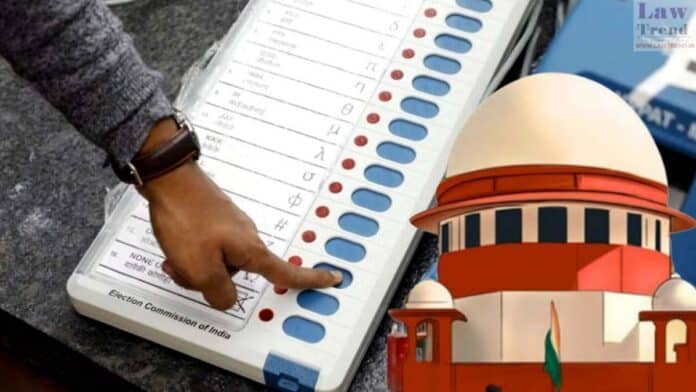The Supreme Court on Thursday urged the Election Commission of India (ECI) to consider accepting Aadhaar cards, ration cards, and Electoral Photo Identity Cards (EPIC) as valid identity documents for voters in the ongoing special intensive revision (SIR) of electoral rolls in Bihar ahead of the upcoming assembly elections.
A bench of Justices Sudhanshu Dhulia and Joymalya Bagchi, while hearing multiple petitions challenging the ECI’s June 24 directive, declined to stay the SIR process but emphasized that the ECI should explain its decision if it chooses to exclude these commonly used IDs.
“It would be in the interest of justice if Aadhaar card, EPIC card and ration card are included. It is for the ECI to decide whether it wants to take these documents or not. If it does not, it must give reasons that satisfy the petitioners,” the Court said in its order.
The Court issued notice to the ECI, asking it to file its counter affidavit by July 21, with rejoinders due by July 28, when the matter will be next heard.
Background and Petitions
The petitions, filed by opposition leaders including Mahua Moitra, Manoj Jha, Yogendra Yadav, and several NGOs like the Association for Democratic Reforms (ADR), challenge the ECI’s SIR directive. They argue that the June 24 order imposes excessive documentation burdens on voters not listed in the 2003 electoral roll, especially requiring post-2004-born individuals to furnish parents’ citizenship papers and, if a parent is a foreign national, passport and visa details from the time of birth.
The petitioners allege that these requirements violate Articles 14, 19, 21, 325, and 326 of the Constitution and breach the Representation of the People Act, 1950. ADR warned that over three crore voters in Bihar may fail to meet these standards, risking mass disenfranchisement in a state marked by high poverty and weak documentation infrastructure.
Supreme Court’s Observations
The Court highlighted three key issues to be examined:
- The ECI’s powers to conduct such a revision.
- The procedures being adopted.
- The short timeline, with elections due in November.
Justice Bagchi pointed out that Aadhaar has already been accepted under Section 23 of the Representation of the People Act for voter inclusion, questioning why it was excluded here:
“This entire exercise is to establish identity. Aadhaar has been taken as solid proof elsewhere; why not here?”
Justice Dhulia echoed concerns about practical hurdles, saying even he might struggle to produce all the documents ECI demands within the given deadline.
Arguments in Court
Senior advocates like Kapil Sibal, Abhishek Manu Singhvi, and Gopal Sankaranarayanan, representing the petitioners, argued that shifting the burden of proving citizenship onto voters — particularly when exempting certain categories like artists or athletes — was arbitrary and discriminatory.
“ECI has no power to determine citizenship. The burden is on them, not on voters,” Sibal contended.
Singhvi added:
“Disenfranchisement of even one voter impacts democracy and the basic structure.”
In defense, the ECI’s counsel, Senior Advocate Rakesh Dwivedi, said the Commission’s role is mandated under the Constitution to ensure only qualified voters remain on the rolls and that the 2003 cutoff was logical, given the intensive revision at that time.
“ECI has direct relation with voters. If voters are not there, we are non-existent,” Dwivedi argued, adding that exemptions were granted to known persons like judges or journalists for practical reasons.
The Supreme Court stressed its reluctance to interfere in ECI’s operations but maintained that Aadhaar should reasonably be part of the accepted identity documents.
“We are most loathe to interfere with the Election Commission of India,” the Bench remarked, underscoring the need for a balanced approach.
The matter will come up again on July 28, with the ECI expected to provide its detailed response.
The Supreme Court has not halted the electoral roll revision but has placed the onus on the ECI to justify the exclusion of Aadhaar, ration cards, and EPIC from its list of accepted identity proofs — an issue central to safeguarding the right to vote in Bihar’s crucial upcoming elections.




